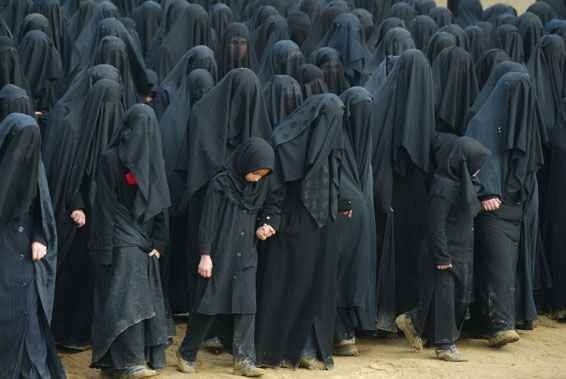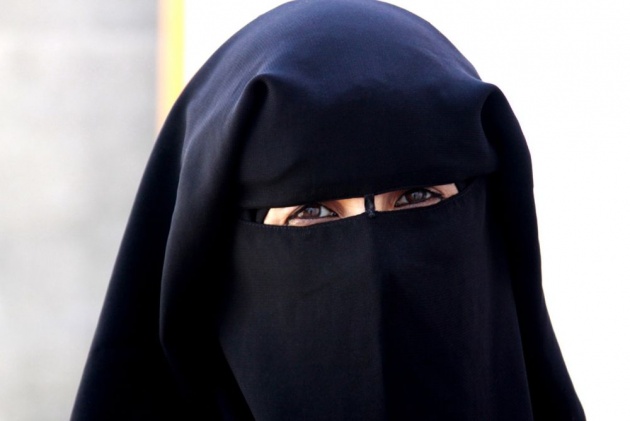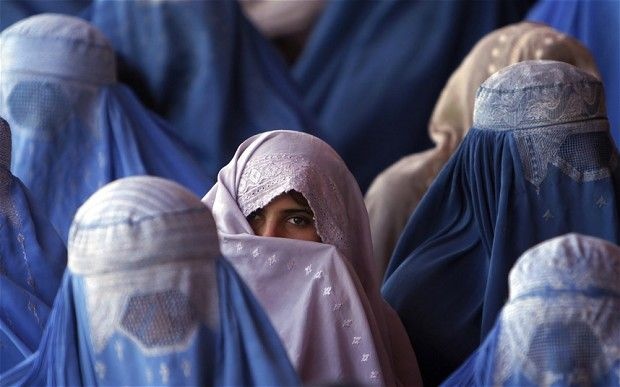The Arabic word "hajab" has a literal translation into " veil" .Adherents of Islam believe that it was orignally implemented by Allah in order to secure Mohammed's privacy and creat a distinction between the public and private spheres of his life.  The word hijab applied to both men and women in terms of protecting both their privates lives from outsiders and to protect one's own honor,not in specific relations to one's sexual activity or desires.
The word hijab applied to both men and women in terms of protecting both their privates lives from outsiders and to protect one's own honor,not in specific relations to one's sexual activity or desires.
Muslims are concerned with clothing in two contexts: clothoing for every day wear, inside and outside the house; and clothing required in specifically religious contexts.
Say to the believing men that they should lower their gaze and guard their modesty: that will make for greater purity for them.And Allah is well acquainted with all that they do.And say that the believing women that they should lower their gaze and guard their modesty that they should not display their beauty and ornaments except what (must ordinarily) appear thereof; that they should draw their veils over their bosoms and not display their beauty except to their husbands , their fathers, their husband's fathers, their sons, their husband's son,their brothers or their brother's sons, or their sisters ' sons , or their women, or their slaves whom their right hands possess, or male servants free of physical needs, or small children who have no sense of the shame of lust, and that they should not strike their feet in order to draw attention to their hidden ornaments . And O ye believers! turn ye all together towards Allah , that ye may attain Bliss.
Sura 24 (AN-Nur), Ayat 30-31 , QUran
O Prophet! Tell thy wives and daughters and the women of the believers to draw their cloaks close round them . That will be better , so that they may be recognized and not harassed.Allah is ever forgiving, Merciful.
So, we can see many refrences in our Holy book.. (Quran) that Allah stress on veil of women.May Allah shower his blessings upon us Ameen.



